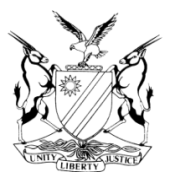ANNEXURE 11
PRACTICE DIRECTIVE 61
REPUBLIC OF NAMIBIA

IN THE HIGH COURT OF NAMIBIA, MAIN DIVISION, WINDHOEK
REVIEW JUDGMENT
Case Title: The State v Isaac Mafudza | Case No: High Court Ref No. 1399/2018 CR 63/2019 | |
Division of Court: High Court Main Division | ||
Heard before: Honourable Justice Damaseb, Judge President et Honourable Justice Sibeya Acting | Delivered on: 05 September 2019 | |
Neutral citation: S v Mafudza (CR 63/2019) [2019] NAHCMD 323 (05 September 2019) | ||
The order:
| ||
Reasons for order: [1] The accused appeared in the Magistrate’s Court held at Rundu on the charge of contravening section 140(1)(a) read with section 1, 60, 145, 146, 147, 148(5), 150, 151, 155 and 180 of the Road Traffic Ordinance 30 of 1967 (the Ordinance). The charge reads ‘In that upon or about the 08 day of September 2018 and on a public road, namely Sauyemwa tarred road at or near Sauyemwa Open Market in the district of Rundu the accused did wrongfully and unlawfully drive a vehicle with registration number N 9744 Ru while he/she was under the influence of intoxicating liquor or a drug having narcotic effect.’ [2] On 18th April 2019 the accused was convicted as charged on his own guilty plea and sentenced to a fine of N$4 500 or in default of such payment twelve months imprisonment. The magistrate further endorsed the diving licence of the accused for six months. [3] When this matter was submitted for review in terms of section 302 of the Criminal Procedure Act1 (the CPA), a query was directed to the presiding magistrate as to why the accused was charged for contravening section 140(1)(a) of the repealed Road Traffic Ordinance 30 of 1967 and whether the conviction is competent in law? [4] The magistrate responded that: ‘The accused was charged under the repealed Ordinance which has been replaced by Act 22/1999 which operation is in force for 20 years now. The issue has been taken up with the Control Public Prosecutor who blames NAMCIS. The conviction and sentence are not competent in law consequently cannot be allowed to stand.’ [5] The Road Traffic Ordinance was repealed by the Road Traffic and Transport Act 22 of 1999 which came into operation on 06 April 2001. Eighteen years after the repeal, it is discouraging to realise that the Road Traffic Ordinance refuses to be scrapped from Court proceedings with the assistance of public prosecutors and magistrates. [6] It is apparent that the Ordinance in terms of which the accused was charged lost its force and effect when it was repealed. The Ordinance could therefore no longer be utilised as the premise for the statutory offence provided in it. It follows that at the time that the accused was charged and convicted, the Ordinance no longer provided for an offence, due to its repeal and consequentially invalid nature. [7] The magistrate appears to have simply followed the charge as presented by the prosecutor. It should be understood that Prosecutors are essential to the attainment of justice in the criminal justice system. They should thus draft charges with professionalism, precision and where the offence is statutory, the charge should reflect the wording preferred in the statutory provision with the correct and valid legislation establishing the offence. Magistrates should also carefully examine charges to ensure that such charges are valid and not objectionable in terms of section 85(1)(a) of the CPA. Failure to examine the correctness of the charge may result in incurably defective proceedings.2 [8] Consequently, the concession of the magistrate was properly made. It follows that the conviction, sentence and the order of the endorsement of the driving licence of the accused for six months were not in accordance with justice and cannot be allowed to stand. [9] In the result, it is ordered that:
| ||
O S SIBEYA ACTING JUDGE | P T DAMASEB JUDGE PRESIDENT | |
1 Act 51 of 1977 as amended
2 S v Mushanga; S v Nghishidimbwa (CR 55/2019) [2019] NAHCMD 295 (20 August 2019) para 15